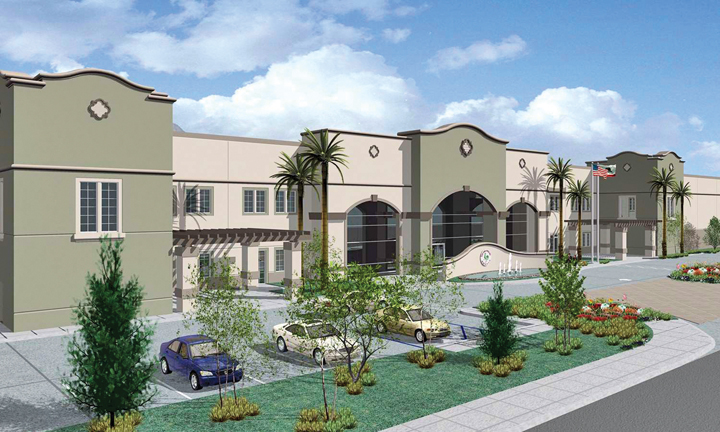Known for producing nearly half of the nation’s fruits, nuts and vegetables from its US$36-billion agricultural base, the Golden State this fall harvested two major food industry projects within one week.
Mission Foods held a grand opening in the San Fernando Valley community of Panorama City for its new $50-million LEED Gold-certified plant, which will employ 400 when it reaches full capacity. Multiple efforts have been made to redevelop the former General Motors plant since it closed in 1992, including projects from the apparel industry project, Los Angeles public safety departments and a mixed-use development called “The Plant.”
Now, after signing a 10-year, $16-million lease in 2007, Mission Foods will use 200,000 sq. ft. (18,580 sq. m.) of the complex to churn out tortillas. Mission partnered with SoCalGas through its Energy Efficiency Calculated Incentive Program to build the plant. Receiving design assistance from SoCalGas, as well as $45,000 in financial incentives to install preheat combustion air for corn and flour tortilla ovens and preheat cooking oil for fryers, the Panorama plant saves approximately 250,000 therms of natural gas per year.
“Working with SoCalGas has helped us to lower our manufacturing and energy costs,” said Lucy Gonzalez, vice president of sustainability for Mission Foods. “We are committed to creating sustainable operations — not just lowering costs, but also reducing our carbon footprint.” Other sustainable efforts include rooftop solar panels for generating some of its own electricity, heat recovery systems, and systems that minimize water use.
Refugee to Redeveloper
Down the road in Irwindale in early October, Seventh Street Development broke ground on a new $40-million corporate headquarters, manufacturing and warehouse facility for Huy Fong Foods, Inc., best known for its Sriracha Hot Chili Sauce. The company will consolidate operations currently housed in two separate locations totaling 232,000 sq. ft. (21,553 sq. m.) in nearby Rosemead to the new build-to-suit when it is completed in fall 2011 on a 23-acre (9.3-hectare) site. The California Mission style building will include 26,000 sq. ft. (2,415 sq. m.) of office space, 150,000 sq. ft. (13,935 sq. m.) of manufacturing space and 480,000 sq. ft. (44,592 sq. m.) of warehouse space all under one roof.
The redevelopment project is expected to eventually add 190 new jobs (tripling Huy Fong’s payroll) and provide $1.5 million annually to the City of Irwindale over the next 10 years in the form of taxes, fees and other payments.
Development, based in Long Beach, was selected by the City of Irwindale in 2008 to develop the blighted site that had been vacant for more than 12 years.
assisted Huy Fong in the acquisition of the site and negotiation of a development agreement with the City; obtained necessary entitlements and CEQA clearances for the project; selected the design and construction team; and will oversee the construction of the facility.
Huy Fong plans to grow its manufacturing capacity tenfold by 2016 to meet demand. The company was founded in 1980 by David Tran, a refugee from Vietnam, in a 2,500-sq.-ft. (232-sq.-m.) L.A. warehouse. Tran named his company after the ship that carried him and his family to freedom following the collapse of South Vietnam.
“With many of its employees living in the area, it was important to Huy Fong to stay in the San Gabriel Valley, which has been its home since 1987,” said Craig Furniss, a principal at Seventh Street Develoment. “Irwindale was one of the few areas able to accommodate Huy Fong’s space requirement and still make financial sense from a development and user perspective.”
